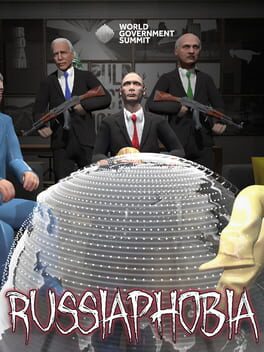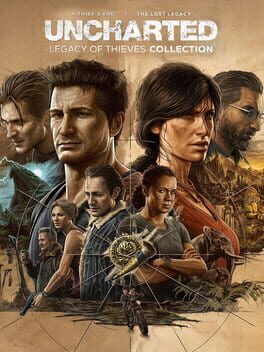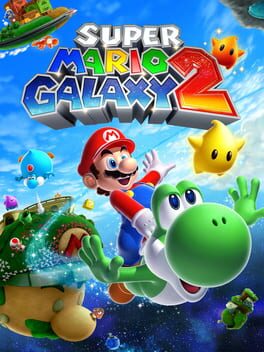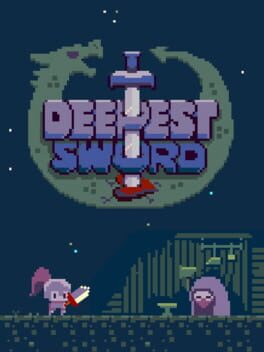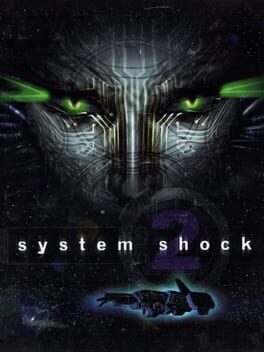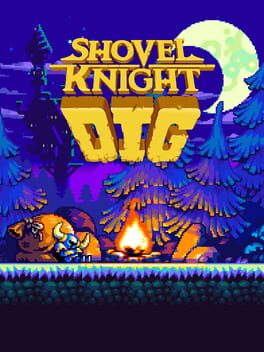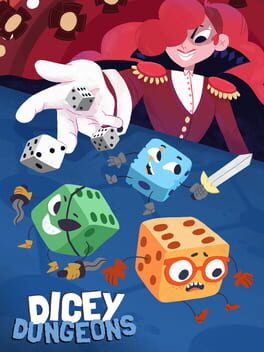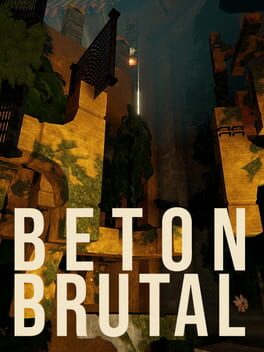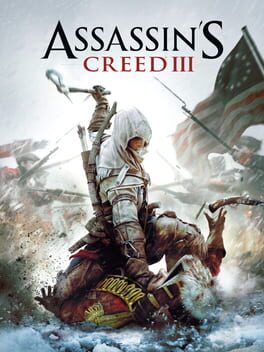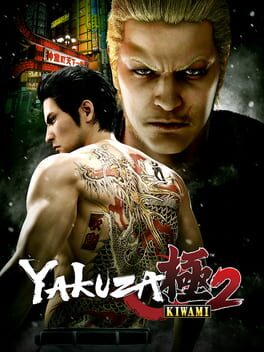371 Reviews liked by gman
Russiaphobia
2020
Baldur's Gate 3
2020
BioShock Infinite
2013
This review contains spoilers
Are you afraid of god?
No, But I’m afraid of this game
Infinite is interesting. Interesting in the sense that it came out at, in my humble opinion, the right time. This and the last of us dominated by both being about a character going along a journey with a companion, slowly getting closer to them until it all culminates. But as much as I’m going to compare it to that, even the last of us has something against bioshock infinite which makes it even more highly regard than infinite. It’s aged better.
Infinite sets you up with the character of booker dewitt. He is a private investigator on a mission to rescue a girl from a secret city. This city…is in the sky, and it’s called Columbia. Compared to the other bioshock games, booker is a lot more talkative and has his own personality, different to that of Jack and delta. And as much as idm this, I find that booker as a protagonist doesn’t truly relate to me. Now don’t get me wrong: neither did Jack or delta, but because they were silent it felt like they were me in a way. Like most fps games I want to feel like it’s me doing all that shit. You also begin to question who truly is in the right, as booker kills thousands of people and doesn’t show any form of remorse. It almost makes me hate booker.
The gameplay of the game gets quite on my nerves. Only being able to carry 2 guns makes combat more of a chore then it does anything exciting. In fact, in previous bioshock games, I got excited for a battle, but in infinite I dreaded a battle. It would mean I would waste ammo and not be able to switch guns quick enough, instead having to pick up a weaker weapon just because I don’t have any ammo. Plasmids in this game are also different. They are known as vigors and are just as over powered as the previous games. And even though they try to have their own personality I can’t help but feel as though they are basically plasmids 2.
It’s not like everything in this game is bad. In fact the world of Columbia is beautiful and I can’t help but marvel at the absolute beauty of it. And the slow decline of it all excellently meshes well. And the plot twist at the very end surprised me a lot and actually impressed me. But other than that…in the end…booker got what he deserved in a way. The ending is almost a show of karma and how it finally caught up to booker and the mistakes he made. There is a slight beauty and quiet sadness to the ending really.
Overall, infinite tries to do many things. It tries to drive the game by story more than gameplay and that’s probably where it falls flat the most and the reason why it hasn’t and won’t age well. But even with the mess of gameplay, the story still has a certain beauty to it that is almost slightly unmatched.
Decent story, dull gameplay, had so much potential, booker was the biggest villain in the end
No, But I’m afraid of this game
Infinite is interesting. Interesting in the sense that it came out at, in my humble opinion, the right time. This and the last of us dominated by both being about a character going along a journey with a companion, slowly getting closer to them until it all culminates. But as much as I’m going to compare it to that, even the last of us has something against bioshock infinite which makes it even more highly regard than infinite. It’s aged better.
Infinite sets you up with the character of booker dewitt. He is a private investigator on a mission to rescue a girl from a secret city. This city…is in the sky, and it’s called Columbia. Compared to the other bioshock games, booker is a lot more talkative and has his own personality, different to that of Jack and delta. And as much as idm this, I find that booker as a protagonist doesn’t truly relate to me. Now don’t get me wrong: neither did Jack or delta, but because they were silent it felt like they were me in a way. Like most fps games I want to feel like it’s me doing all that shit. You also begin to question who truly is in the right, as booker kills thousands of people and doesn’t show any form of remorse. It almost makes me hate booker.
The gameplay of the game gets quite on my nerves. Only being able to carry 2 guns makes combat more of a chore then it does anything exciting. In fact, in previous bioshock games, I got excited for a battle, but in infinite I dreaded a battle. It would mean I would waste ammo and not be able to switch guns quick enough, instead having to pick up a weaker weapon just because I don’t have any ammo. Plasmids in this game are also different. They are known as vigors and are just as over powered as the previous games. And even though they try to have their own personality I can’t help but feel as though they are basically plasmids 2.
It’s not like everything in this game is bad. In fact the world of Columbia is beautiful and I can’t help but marvel at the absolute beauty of it. And the slow decline of it all excellently meshes well. And the plot twist at the very end surprised me a lot and actually impressed me. But other than that…in the end…booker got what he deserved in a way. The ending is almost a show of karma and how it finally caught up to booker and the mistakes he made. There is a slight beauty and quiet sadness to the ending really.
Overall, infinite tries to do many things. It tries to drive the game by story more than gameplay and that’s probably where it falls flat the most and the reason why it hasn’t and won’t age well. But even with the mess of gameplay, the story still has a certain beauty to it that is almost slightly unmatched.
Decent story, dull gameplay, had so much potential, booker was the biggest villain in the end
Baldur's Gate 3
2020
The amount of depth to this game is astounding! Normally this type of gameplay in a video game isn't my thing but here I am 150 hours later already planning my second playthrough. The companions are so loveable and compelling. The voice acting is stellar and definitely helped dig the knife in at certain emotional points. I have a few gripes but they may be touched on with incoming patches so I'll keep them to myself for now
Super Mario Galaxy 2
2010
Deepest Sword
2021
System Shock 2
1999
System Shock 2 has to be one of the richest games I've ever played. What does that mean? It means that in every single category, System Shock 2 excels at something. While the game isn't perfect by any means, it has easily rocketed to one of my favorite experiences. The game's design is so mechanically deep, with multiple different routes you can go down as a player. Soldier acts as a canvas for you to fully customize your playstyle, whether it be a combat expert who goes into every encounter guns blazing, a hacker who can manipulate security systems and turn turrets against their masters, to a psychic god who can manipulate their environment around them. Going for a weird mixture of all three, I found the game never limits you with the build you want to make, each one is equally viable. Even disregarding this, the game's mechanics contribute heavily to a highly immersive and most importantly - scary - atmosphere. There's nothing scarier than seeing a mutilated cyborg midwife bolting down a corridor only to have your pistol break on you when you try to fire. Very few games have given me that "holy shit oh god oh god" reaction on such a visceral level. Combat feels surprisingly good in this, thwacking hybrids with a wrench while sprinting at them feels fantastic and the gunplay has a surprising amount of oomph. What makes the game special among other things is the environmental exploration and how the level design feels entirely natural. Never once does the game ever feel like you're exploring levels, but rather lived-in environments that people used. This increases immersion tenfold and it's impressive how seamless everything feels, especially regarding backtracking. I will say that hunting for restoration bays doesn't feel nearly as nerve-wracking as they did in the first game, since they're usually immediately available to the player with a few exceptions.
The game isn't perfect, however, and that comes down to some of the weapon balance. Some of the weapons just aren't very good, such as the laser pistol, whose advantages of theoretically infinite ammo are outweighed by its small damage output even against mechanical foes. The laser rapier, a weapon that would burn fear into even the strongest of enemies in the original game, is significantly less effective in this one, with its high skill requirements betraying its general lack of usefulness. The hacking is also far inferior in this game. While not necessarily amazing in SS1 either, in SS2 it feels like random chance with little skill whether you succeed or not. It's not a massive problem since leveling up your hacking ability and using certain augmentations can make your chances better, but I would have preferred something with mechanics for me to learn and master, rather than just brute-forcing past them with stat upgrades. These are minor problems at the end of the day. System Shock 2 has to be one of the most mechanically satisfying games I've played in a long time.
System Shock has never been a franchise that prided itself on story, but rather its excellent worldbuilding. With the first game pioneering the now commonplace audio log, it only makes sense that the sequel would continue to improve upon that formula. Like the first game, SS2 primarily delivers its story content through these logs, following the lives of the members of the Von Braun before their inevitable demise at the hands of The Many. These accounts are detailed, well-acted, and even terrifying. You get to hear first-hand accounts of people in the process of transforming into lumbering hybrids, staff begging for their lives as their mutated boss blasts them into pulp, and the last survivor of the Hydroponics deck chronicling his observations while awaiting his eventual consumption within the body of the many. Such a richly detailed and dense world does not go to waste here, and the player even follows the same characters via these logs and even gets to see the results of the events described, such as finally watching two lovers escape on the Von Braun's last escape pod after hours of searching for one another. Every single item in the game, even a simple beaker, has a thorough explanation and worldbuilding, and small details like that help make System Shock 2 feel more alive. While I mentioned the series is typically somewhat light on a conventional scenario, the plot twist midway through the game is simply brilliant and I didn't see it coming at all. The ending is terrible and entirely atonal to the rest of the game, but it is simply the ending and doesn't prevent the rest from being taken seriously.
System Shock 2's visual presentation is a bit of a mixed bag, but it has some highlights. Looking Glass Studios' Dark Engine was a pretty antiquated beast even back then, and Irrational Games couldn't quite overcome its limitations. Even for 1999, the game's character models are truly horrendous, with games like 1998's Half-Life featuring much more lively and detailed models. Weapon models are beyond basic, featuring little detail, and are visibly more polygonal than other games. Environments flip-flop between being insanely detailed and a tad too basic, but when the game fires on all cylinders, it can far eclipse its contemporaries in this category. The pulsing masses of annelids on the walls and other animated textures are a nice touch for sure, but the lack of blood decals after combat does take away a slight bit of oomph from the combat. The game's sometimes lacking detail is made up for somewhat by Irrational's choice to target a somewhat comic book-esque art style, and the strong monster designs and environmental concepts do shine through. The midwives and hybrids that stalk you through the Von Braun are genuinely terrifying creatures, with intelligent use of body horror and sound design to evoke fear whenever they may appear. Even the robots are terrifying, mostly due to the danger they present to the player. The character portraits are somewhat variant in quality but generally add to this style.
System Shock 2's audio design is the stuff of gaming legend, primarily directed and music composed by Eris Broseus. Irrational put a lot of focus on this area of the game and it paid off - it's part of why the game is so scary. The game makes fantastic use of surround sound, and hearing a mumbling hybrid or psychic monkey far off in the distance while hacking a storage crate is frighteningly realistic. From the broken radio screams that midwives make when struck, to the hybrids' pleas for death, the game's gruesome palette is written by the audio. The soundtrack is often described as "unfitting of a horror game" but I couldn't disagree more. While the intense breakbeat fitting of a laser tag arena might seem unfitting, the high tempo of the music and pounding beats perfectly match the panic that the player experiences while being chased by the screaming hordes. Med Sci 1 and Hydro 1 are perfect breakbeat tracks, while still conveying tones of dread and panic. Even so, the game still has plenty of more conventionally scary ambient music, such as Hydro 2, which has a spaced-out ambiance that naturally fits the outer space setting of the game. It honestly makes me wish more game composers put more small rhythms into their ambient tracks rather than just drones, even if I still greatly appreciate good drone music. While I do miss the dynamic soundtrack of the first game, System Shock 2 has one of the best soundtracks in late 90s gaming, and Brosius and his team of composers deserve all of the praise for creating something both creative and terrifying.
System Shock 2 is often seen as a landmark title in the world of video games and I'm beyond happy to discover that those assessments are truthful. Its game mechanics, methods of storytelling, detailed worldbuilding, player freedom, art direction, audio design, and soundtrack are beyond worthy of praise and deservedly are the stuff of legends. Even if the game suffers from occasionally iffy weapon balancing, questionable hacking mechanics, and a thoroughly unsatisfying ending, these flaws feel almost negligible in comparison to the monolithic quality of the rest of the game. It's a worthy successor to the already outstanding original game.
The game isn't perfect, however, and that comes down to some of the weapon balance. Some of the weapons just aren't very good, such as the laser pistol, whose advantages of theoretically infinite ammo are outweighed by its small damage output even against mechanical foes. The laser rapier, a weapon that would burn fear into even the strongest of enemies in the original game, is significantly less effective in this one, with its high skill requirements betraying its general lack of usefulness. The hacking is also far inferior in this game. While not necessarily amazing in SS1 either, in SS2 it feels like random chance with little skill whether you succeed or not. It's not a massive problem since leveling up your hacking ability and using certain augmentations can make your chances better, but I would have preferred something with mechanics for me to learn and master, rather than just brute-forcing past them with stat upgrades. These are minor problems at the end of the day. System Shock 2 has to be one of the most mechanically satisfying games I've played in a long time.
System Shock has never been a franchise that prided itself on story, but rather its excellent worldbuilding. With the first game pioneering the now commonplace audio log, it only makes sense that the sequel would continue to improve upon that formula. Like the first game, SS2 primarily delivers its story content through these logs, following the lives of the members of the Von Braun before their inevitable demise at the hands of The Many. These accounts are detailed, well-acted, and even terrifying. You get to hear first-hand accounts of people in the process of transforming into lumbering hybrids, staff begging for their lives as their mutated boss blasts them into pulp, and the last survivor of the Hydroponics deck chronicling his observations while awaiting his eventual consumption within the body of the many. Such a richly detailed and dense world does not go to waste here, and the player even follows the same characters via these logs and even gets to see the results of the events described, such as finally watching two lovers escape on the Von Braun's last escape pod after hours of searching for one another. Every single item in the game, even a simple beaker, has a thorough explanation and worldbuilding, and small details like that help make System Shock 2 feel more alive. While I mentioned the series is typically somewhat light on a conventional scenario, the plot twist midway through the game is simply brilliant and I didn't see it coming at all. The ending is terrible and entirely atonal to the rest of the game, but it is simply the ending and doesn't prevent the rest from being taken seriously.
System Shock 2's visual presentation is a bit of a mixed bag, but it has some highlights. Looking Glass Studios' Dark Engine was a pretty antiquated beast even back then, and Irrational Games couldn't quite overcome its limitations. Even for 1999, the game's character models are truly horrendous, with games like 1998's Half-Life featuring much more lively and detailed models. Weapon models are beyond basic, featuring little detail, and are visibly more polygonal than other games. Environments flip-flop between being insanely detailed and a tad too basic, but when the game fires on all cylinders, it can far eclipse its contemporaries in this category. The pulsing masses of annelids on the walls and other animated textures are a nice touch for sure, but the lack of blood decals after combat does take away a slight bit of oomph from the combat. The game's sometimes lacking detail is made up for somewhat by Irrational's choice to target a somewhat comic book-esque art style, and the strong monster designs and environmental concepts do shine through. The midwives and hybrids that stalk you through the Von Braun are genuinely terrifying creatures, with intelligent use of body horror and sound design to evoke fear whenever they may appear. Even the robots are terrifying, mostly due to the danger they present to the player. The character portraits are somewhat variant in quality but generally add to this style.
System Shock 2's audio design is the stuff of gaming legend, primarily directed and music composed by Eris Broseus. Irrational put a lot of focus on this area of the game and it paid off - it's part of why the game is so scary. The game makes fantastic use of surround sound, and hearing a mumbling hybrid or psychic monkey far off in the distance while hacking a storage crate is frighteningly realistic. From the broken radio screams that midwives make when struck, to the hybrids' pleas for death, the game's gruesome palette is written by the audio. The soundtrack is often described as "unfitting of a horror game" but I couldn't disagree more. While the intense breakbeat fitting of a laser tag arena might seem unfitting, the high tempo of the music and pounding beats perfectly match the panic that the player experiences while being chased by the screaming hordes. Med Sci 1 and Hydro 1 are perfect breakbeat tracks, while still conveying tones of dread and panic. Even so, the game still has plenty of more conventionally scary ambient music, such as Hydro 2, which has a spaced-out ambiance that naturally fits the outer space setting of the game. It honestly makes me wish more game composers put more small rhythms into their ambient tracks rather than just drones, even if I still greatly appreciate good drone music. While I do miss the dynamic soundtrack of the first game, System Shock 2 has one of the best soundtracks in late 90s gaming, and Brosius and his team of composers deserve all of the praise for creating something both creative and terrifying.
System Shock 2 is often seen as a landmark title in the world of video games and I'm beyond happy to discover that those assessments are truthful. Its game mechanics, methods of storytelling, detailed worldbuilding, player freedom, art direction, audio design, and soundtrack are beyond worthy of praise and deservedly are the stuff of legends. Even if the game suffers from occasionally iffy weapon balancing, questionable hacking mechanics, and a thoroughly unsatisfying ending, these flaws feel almost negligible in comparison to the monolithic quality of the rest of the game. It's a worthy successor to the already outstanding original game.
Shovel Knight Dig
2022
Pros:
+ the roguelike genre is a natural fit for Shovel Knight
+ most of the cast of the original returns in some form
+ look, sound, and feel are familiar to fans of the original game
+ one playthrough is quick and possible without too many meta-upgrades
+ choice between health and item after a stage offers tactical options
+ procedural level design rarely feels artificial
+ stages offer a lot of unique new challenges to overcome
+ many secrets to discover both within and outside of the dungeon
Cons:
- soft time limit feels manufactured and at odds with the exploratory design
- losing items after being hit leads to frequent moments of frustration
- some items are practically useless compared to movement upgrades
- collision and hit detection are wonky in the later stages
- meta-upgrades are exceedingly expensive
- level select signs are unexplained and unclear
- finishing a run is practically impossible without health upgrades
- most characters in town do not serve any function and have nothing to say
- the secret ending is almost impossible to discover on your own
Playtime: 6 hours with one ending discovered and only few additional armor and other upgrades found.
Magic Moment: Discovering that the owl is not what it seems.
Verdict:
A decent if somewhat unremarkable excursion into the roguelike genre for Shovel Knight and the team behind his creation. The soft time limit in the form of a deadly saw that follows you throughout the stage feels unnecessary and artifically inflates the difficulty, while the combat and bosses are fair and mostly fun to fight.
Take a lot at it if you want more Shovel Knight, but do not expect a deep roguelike action game.
+ the roguelike genre is a natural fit for Shovel Knight
+ most of the cast of the original returns in some form
+ look, sound, and feel are familiar to fans of the original game
+ one playthrough is quick and possible without too many meta-upgrades
+ choice between health and item after a stage offers tactical options
+ procedural level design rarely feels artificial
+ stages offer a lot of unique new challenges to overcome
+ many secrets to discover both within and outside of the dungeon
Cons:
- soft time limit feels manufactured and at odds with the exploratory design
- losing items after being hit leads to frequent moments of frustration
- some items are practically useless compared to movement upgrades
- collision and hit detection are wonky in the later stages
- meta-upgrades are exceedingly expensive
- level select signs are unexplained and unclear
- finishing a run is practically impossible without health upgrades
- most characters in town do not serve any function and have nothing to say
- the secret ending is almost impossible to discover on your own
Playtime: 6 hours with one ending discovered and only few additional armor and other upgrades found.
Magic Moment: Discovering that the owl is not what it seems.
Verdict:
A decent if somewhat unremarkable excursion into the roguelike genre for Shovel Knight and the team behind his creation. The soft time limit in the form of a deadly saw that follows you throughout the stage feels unnecessary and artifically inflates the difficulty, while the combat and bosses are fair and mostly fun to fight.
Take a lot at it if you want more Shovel Knight, but do not expect a deep roguelike action game.
Dicey Dungeons
2019
Pro:
+ unique dice system with puzzle and strategic elements
+ addictive gameplay loop that is easy to learn but hard to master
+ chance effects are smartly obfuscated
+ every character offers a different playstyle
+ large variety of usable equipment
+ enemies are challenging and use their dice efficiently
+ enemies have elemental weaknesses and strengths
+ dice element effects are surprisingly complex
+ limit breaks offer tactical choices
+ save scamming is possible (and I would encourage it)
+ final episode is a smart and fitting end to the game
+ DLC offers even more playstyles and more complex puzzle episodes
Cons:
- a full run can take over an hour on later episodes
- difficulty is generally brutal and one bad fight can end a run
- some episodes require long-form planning and a lot of luck
- randomness inherent in dice games can become frustrating
- lack of meta-upgrades is a questionable design decision
- UI is confusing and dice tend to cover the play area
- visual style is flatout ugly
- enemy design is terrible and most are carricatures (gay wizard? smartphone witch?)
- sound design is equally awful
- writing is forgettable and dialogue cannot be skipped
- shop item costs are randomized for no reason
- not all relevant information is available during fights: no exp level etc.
- pause button does not actually pause the game
- you never get to win the car!
Playtime: 73 hours with all episodes, all hardmode levels plus all DLC episodes finished and 90 percent of achievements acquired.
Magic Moment: Showing the game to my partner for the first time and them falling in love with it much more than I did. My partner did not even want me to uninstall it after we finished it.
Favourite character: The thief. Feels very different to play and stealing items is fun.
Worst episode: Episode four of the inventor. Finishing it is an excercise in futility.
Verdict:
I am fully aware that one's taste for the aesthetics of a game are highly personal, but I have to come right out and say it: Dicey Dungeons is an ugly game with an ugly presentation that is best played with the sound of and a trigger finger on the button whenever characters start talking. With that in mind, the underlying combat mechanics are extremely strong, the different characters feel very differently from each other, and the real sense of progress from one episode to another quickly leads to the infamous loop of "one more run" that will cost you more than just a few hours of sleep.
Play it if like dice games and crave a challenge. Playing through all the episodes and additional DLC challenges is not necessary to enjoy this game and doing so will lead to a lot of frustration, which is mitigated by save scamming and restarting boss fights, which I would highly encourage.
+ unique dice system with puzzle and strategic elements
+ addictive gameplay loop that is easy to learn but hard to master
+ chance effects are smartly obfuscated
+ every character offers a different playstyle
+ large variety of usable equipment
+ enemies are challenging and use their dice efficiently
+ enemies have elemental weaknesses and strengths
+ dice element effects are surprisingly complex
+ limit breaks offer tactical choices
+ save scamming is possible (and I would encourage it)
+ final episode is a smart and fitting end to the game
+ DLC offers even more playstyles and more complex puzzle episodes
Cons:
- a full run can take over an hour on later episodes
- difficulty is generally brutal and one bad fight can end a run
- some episodes require long-form planning and a lot of luck
- randomness inherent in dice games can become frustrating
- lack of meta-upgrades is a questionable design decision
- UI is confusing and dice tend to cover the play area
- visual style is flatout ugly
- enemy design is terrible and most are carricatures (gay wizard? smartphone witch?)
- sound design is equally awful
- writing is forgettable and dialogue cannot be skipped
- shop item costs are randomized for no reason
- not all relevant information is available during fights: no exp level etc.
- pause button does not actually pause the game
- you never get to win the car!
Playtime: 73 hours with all episodes, all hardmode levels plus all DLC episodes finished and 90 percent of achievements acquired.
Magic Moment: Showing the game to my partner for the first time and them falling in love with it much more than I did. My partner did not even want me to uninstall it after we finished it.
Favourite character: The thief. Feels very different to play and stealing items is fun.
Worst episode: Episode four of the inventor. Finishing it is an excercise in futility.
Verdict:
I am fully aware that one's taste for the aesthetics of a game are highly personal, but I have to come right out and say it: Dicey Dungeons is an ugly game with an ugly presentation that is best played with the sound of and a trigger finger on the button whenever characters start talking. With that in mind, the underlying combat mechanics are extremely strong, the different characters feel very differently from each other, and the real sense of progress from one episode to another quickly leads to the infamous loop of "one more run" that will cost you more than just a few hours of sleep.
Play it if like dice games and crave a challenge. Playing through all the episodes and additional DLC challenges is not necessary to enjoy this game and doing so will lead to a lot of frustration, which is mitigated by save scamming and restarting boss fights, which I would highly encourage.
Pros:
+ unique 1-bit visuals ooze style
+ central deduction mechanic is singular in the medium
+ the murder mystery hooks you from the first minute
+ death memories are incredibly designed and full of details
+ the game tells a fully realized story in a handful of static scenes
+ supernatural elements add a lot of intrigue to the story
+ faces slowly appearing on the sketch serves as a smart guidance system
+ the three-correct-solutions design is a great idea
+ the guidance book is well-designed and mostly quick to use
+ clues can be gathered in many different ways and places
+ some murder scenes accept various causes of deaths
+ incredible sound design and voice acting
+ the game can be finished with any number of correct solutions
+ the soundtrack is tailored to each chapter and serves secret hints...
Cons:
- ...but is far too blarring for my taste and cannot be volume adjusted
- no in-game system to record clues and possible connections
- memories play out twice for no apparent reason
- ghost animations after a death memory cannot be skipped
- memories cannot be played from the book
- not all causes of death are identifiable without some guess work
- some victims' memories can only be identified via other death sequences
- not all people can be identified in a given memory if they are too far away
- the final chapter is a letdown and reveals nothing interesting
Playtime: 11,5 hours with the entire book filled. A few solutions were lucky guesses.
Magic Moments: Realizing for the first time that there are supernatural elements to the story. Finally identifying that one guy with the beanie hat who is in practically every memory. Guessing corectly which place some of the crew disappeared to on my first attempt.
Most Difficult Deduction: The name and fate of the circus strong man.
Verdict:
Return of the Obra Dinn is nothing short of a masterpiece. Lucas Pope careful, precise creation of not one but 60 murder mysteries is simply incredible, and there are enough smart design ideas here to fill at least three other games. While the journey across and below the ship to each corpse and their death memories can get a bit tiresome over the course of a playthrough, the audio-visual style more than enough for it with a unique look that oozes style. It is save to say that Obra Dinn will feel just as fresh and exciting in the future as it did on its initial release all thanks to its daring but detailed art direction, even if the story of its crew and their often violent demise can only properly be experienced once due to the nature of the game.
One complete journey on the Obra Dinn however should be absolutely mandatory for any fan of deduction games, Sudoku riddles, or players interested in the dangers of maritime life in the 19th century. You will not regret it.
+ unique 1-bit visuals ooze style
+ central deduction mechanic is singular in the medium
+ the murder mystery hooks you from the first minute
+ death memories are incredibly designed and full of details
+ the game tells a fully realized story in a handful of static scenes
+ supernatural elements add a lot of intrigue to the story
+ faces slowly appearing on the sketch serves as a smart guidance system
+ the three-correct-solutions design is a great idea
+ the guidance book is well-designed and mostly quick to use
+ clues can be gathered in many different ways and places
+ some murder scenes accept various causes of deaths
+ incredible sound design and voice acting
+ the game can be finished with any number of correct solutions
+ the soundtrack is tailored to each chapter and serves secret hints...
Cons:
- ...but is far too blarring for my taste and cannot be volume adjusted
- no in-game system to record clues and possible connections
- memories play out twice for no apparent reason
- ghost animations after a death memory cannot be skipped
- memories cannot be played from the book
- not all causes of death are identifiable without some guess work
- some victims' memories can only be identified via other death sequences
- not all people can be identified in a given memory if they are too far away
- the final chapter is a letdown and reveals nothing interesting
Playtime: 11,5 hours with the entire book filled. A few solutions were lucky guesses.
Magic Moments: Realizing for the first time that there are supernatural elements to the story. Finally identifying that one guy with the beanie hat who is in practically every memory. Guessing corectly which place some of the crew disappeared to on my first attempt.
Most Difficult Deduction: The name and fate of the circus strong man.
Verdict:
Return of the Obra Dinn is nothing short of a masterpiece. Lucas Pope careful, precise creation of not one but 60 murder mysteries is simply incredible, and there are enough smart design ideas here to fill at least three other games. While the journey across and below the ship to each corpse and their death memories can get a bit tiresome over the course of a playthrough, the audio-visual style more than enough for it with a unique look that oozes style. It is save to say that Obra Dinn will feel just as fresh and exciting in the future as it did on its initial release all thanks to its daring but detailed art direction, even if the story of its crew and their often violent demise can only properly be experienced once due to the nature of the game.
One complete journey on the Obra Dinn however should be absolutely mandatory for any fan of deduction games, Sudoku riddles, or players interested in the dangers of maritime life in the 19th century. You will not regret it.
Beton Brutal
2023
Assassin's Creed III
2012
Realmente está guapo cuando el juego empieza a partir de la secuencia 7 o así nose, de 12 putisimas secuencias. Para luego sentirse realmente pesado hasta llegar al "arco final" donde todo escala y va durisimo todo. Pero eso. Hasta entonces el juego es un tutorial de cosas que al final no he usado excepto 2 o 3 veces (La caza lmao, la he usado en el tutorial)
